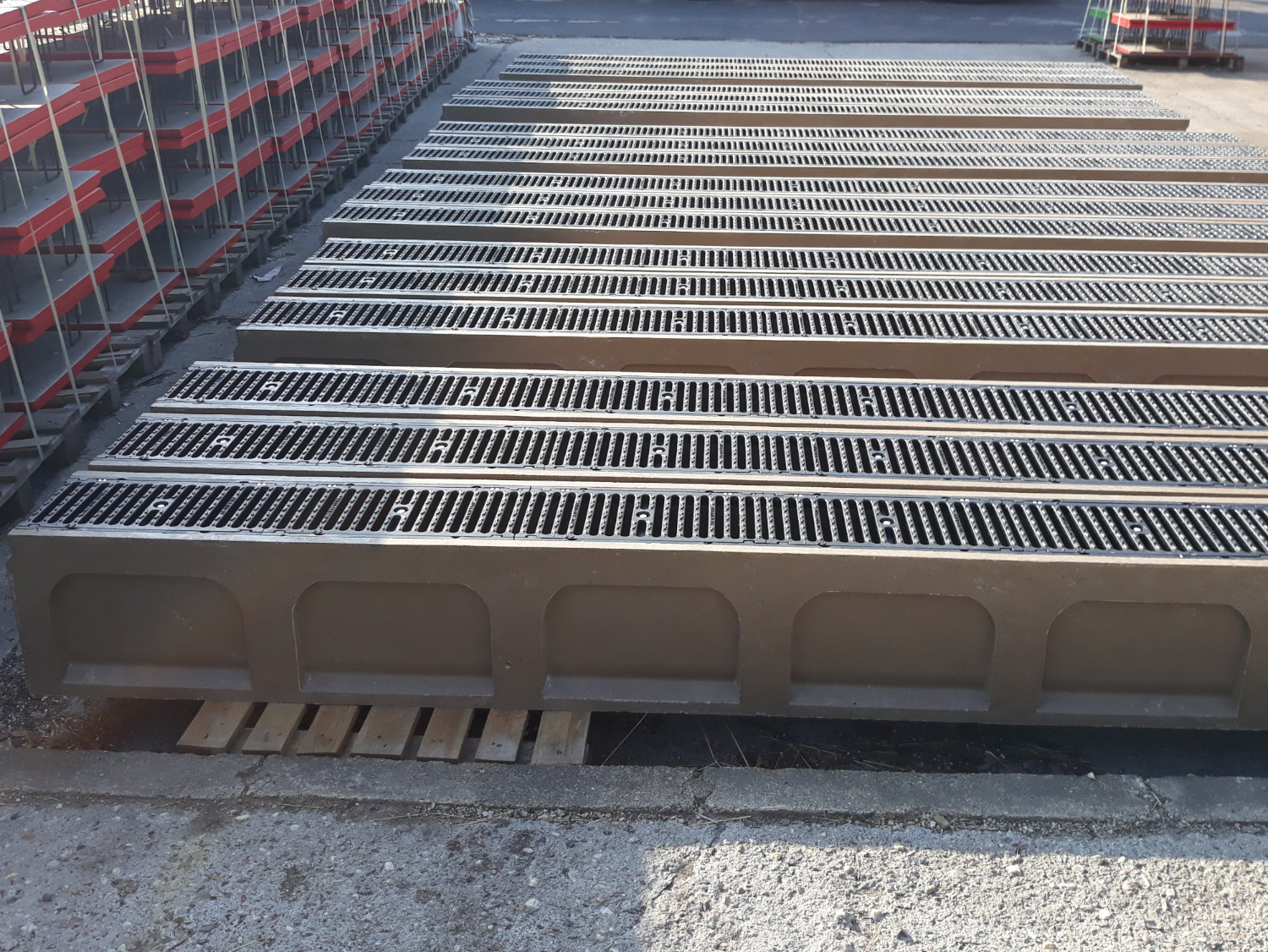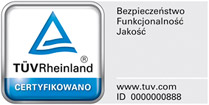Polymer concrete applications
22 January 2021Polymer concrete, sometimes known as resin concrete, is characterized by an outstanding mechanical and chemical resistance and a well recognized low water absorption. Thanks to these properties, polymer concrete production scale has significantly increased and started to replace regular concrete in many uses that just a few years ago was impossible to predict.

Where is polymer concrete used?
Polymer concrete is mainly used in civil construction as system elements such as bridge cornice panels, dewatering channels, sewage discharging elements, railway sleepers or tanks in an aggressive environment.
Ornamental flooring systems are also made in polymer concrete considering its decorative appearance achieved by a smooth and easily colored surface.
As we mentioned before this material presents excellent mechanical and chemical resistances but also is highly resistant to moisture and low temperatures, promoting even more its success as construction material.
Polymer concrete is present also in a completely separate field as it is in the repairing and/or refurbishing of regular concrete structures extending their useful life.
SYTEC has been involved in this business for almost 30 years, producing polymer concrete prefabricated elements as described but also introducing new solutions with the highest quality. Just recently, we have expanded our offer with drainage systems, including SOLID, MONOBLOCK, kerbs and drainage systems.
Types of polymer concrete
Based on the composition mainly three different types of polymer concrete may be found:
- Resin concrete formed by the crosslinking of resin adhered to aggregates and other fillers.
- Polymer-cement concrete obtained by curing the cement mixture with polymers or monomers.
- Polymer impregnated concrete made by crosslinking a polymer added to the pores of regular concrete without polymer additives.
For the production of the above mentioned types of polymer-concrete, various polymers are used with addition of various fillers and auxiliary substances.
SYTEC mainly uses synthetic resin, aggregates, mineral fillers and other ingredients to produce polymer concrete. All our formulations are studied and determined specifically for each particular application.
Advantages when using polymer concrete
Our polymer concrete is mainly characterized by an excellent strength and high chemical resistance, including both acids and bases, making them resistant to wide range of aggressive media. Its low water absorption makes them also appropriate in damp or wet environments.
In conclusion, their excellent physical and chemical properties including an important abrasion resistance significantly extends product service life compared to standard concrete. Typically material cracking, if not because a poor design, is typically the result of poor component proportions in the mix. We conclude the importance of the technical expertise and knowledge of the selected supplier.
Summary
Polymer concrete has been known for over fifty years and can be divided into three groups based on the components from which it is formed. It is rapidly replacing standard concrete in many uses that few years ago had no alternative providing also a much longer service life. We expect within a few years to have a wide range of products available not only in the industrial field but also including civil construction level.

